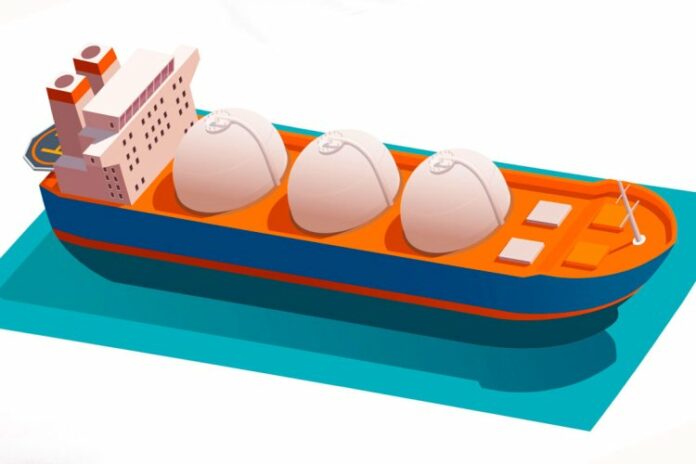Mitsubishi Shipbuilding Co., Ltd., a part of Mitsubishi Heavy Industries (MHI) Group, has taken its first order for LNG (Liquefied Natural Gas) fuel supply systems (FGSS)(Note) for high-pressure dual-fuel marine engines. The company will deliver FGSS to be installed on six (6) LNG-fueled car carriers to be built by a group company of Imabari Shipbuilding Co., Ltd.
The core components of the newly ordered FGSS are LNG fuel tanks, LNG fuel gas supply units and a control unit. The equipment module design considering space-saving and excellent maintainability contributes to the optimum design of the cargo space and helps the shipyard to shorten the installation period, as well as supports safe operation by customizing the control system and other aspects of the FGSS to meet the operational needs of the customer.
The conversion of marine fuels to LNG is one of solutions responding to today’s emissions regulations targeting reduction of greenhouse gases (GHG). Mitsubishi Shipbuilding’s FGSS have been developed for marine engines after delivery records of systems for onshore engine test facilities. They were developed by utilizing the company’s LNG and vaporized gas handling technologies accumulated through its extensive experience with construction of LNG carriers. The company has already received orders for and delivered FGSS for marine low-pressure engines, and this latest order for FGSS for marine high-pressure engines means that the company has acquired orders for both low-pressure and high-pressure types.
Through providing FGSS to an expanding number of customers involved in the construction of LNG-fueled ships, Mitsubishi Shipbuilding fulfills part of MHI Group’s strategic initiatives promoting energy transition while also enhancing the added value and competitiveness of marine vessels.
As a marine system integrator, the company will promote decarbonization in the maritime industry and strive to achieve carbon neutrality by helping to reduce GHG emissions through the popularization of LNG-fueled vessels for reducing environmental impact on a global scale.



